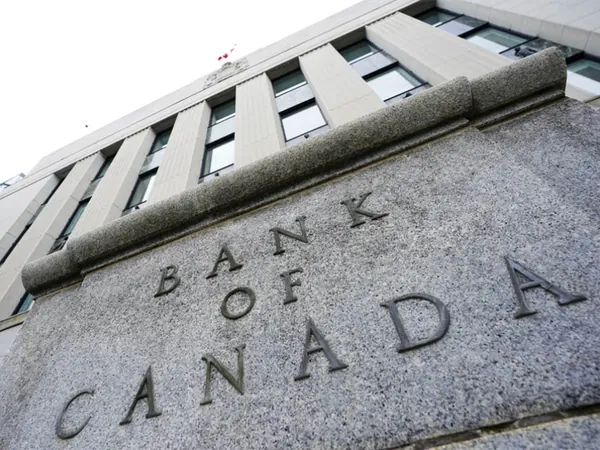
CIBC Predicts Major Rate Cuts on the Horizon for the Bank of Canada
2024-09-25
CIBC's Forecast on Interest Rate Cuts
The Bank of Canada may be on the verge of implementing significant interest rate cuts, according to analysts at CIBC Capital Markets. As economic data trends continue to soften, reports suggest that the central bank cannot maintain its current cautious approach for long.
Anticipated Rate Cuts
CIBC forecasts that the Bank of Canada is likely to announce two substantial cuts of 50 basis points each, tentatively planned for December and January. This move could drive the target rate down to 2.25% by June 2025.
Context of Recent Rate Reductions
This anticipated shift comes as the Bank of Canada has already reduced rates by 25 basis points three times since early June. Sarah Ying, CIBC's head of currency strategy, emphasized the need for faster action amid worries that inflation risks are diminishing while growth risks are rising. "The bank doesn't have much reason to move this slowly," she stated in a recent webinar discussing the Federal Reserve and the Canadian dollar's performance.
Discussion on Jumbo Rate Cuts
Jumbo rate cuts, surpassing the standard 25 basis points, have gained traction as a hot topic following the Fed's recent cut of 50 basis points—its first in over four years. Some economists on Bay Street argue that the Fed's decision may open the door for the Bank of Canada to follow suit with deeper cuts than it's been making.
Clarification on Rate Adjustments
However, Ying clarified that any adjustments in the Bank of Canada’s rates will not merely be a response to the Fed's actions. "It is about moving toward normalcy more rapidly," she said. The "normal" rate range for the Bank of Canada is set between 2.25% and 3.25%, reflecting the conditions for stable inflation and economic growth.
Inflation Data Insights
While inflation data for August has met the Bank's target at around 2%, Ying mentioned that omitting mortgage interest costs would present a rate closer to 1.3%. The calculations reveal an intricate picture; adjustments in the consumer price index now show that mortgage costs greatly influence inflation metrics, suggesting potential downward pressure on inflation should rates decline quicker than currently expected.
Mixed Signals in the Canadian Economy
The Canadian economy has seen mixed signals, with retail sales rising by 0.9% in July, above predictions of 0.6%. Nonetheless, discrepancies appear when evaluating growth on a per capita basis, where retail sales have actually fallen by 1.3% year-over-year. Ying pointed out population growth is skewing perceptions of economic expansion, noting that the Bank of Canada acknowledges this factor as well in its latest forecasts.
Household Debt and Consumption
Moreover, the financial burden of debt servicing is increasing for households, resulting in decreased consumption expenditures. Labor market conditions remain weaker compared to the U.S., indicating a more cautious outlook for the Canadian economy. Ying concluded that while the data might reflect growth, the underlying conditions suggest a growing imbalance.
Housing Crisis in the Greater Toronto Area
In other economic news, the Greater Toronto Area is experiencing a housing crisis, with growing municipal fees and slow approval processes inflating home costs dramatically. The Municipal Benchmarking Study from the Building Industry and Land Development Association underscores this issue, indicating the housing stock is lagging significantly behind population growth, which could lead to a larger crisis unless immediate actions are taken.
Conclusion and Future Outlook
As we continue to track the impacts of inflation and economic growth, the focus remains on the Bank of Canada's upcoming decisions that could reshape the financial landscape significantly. Will these jumbo cuts materialize as predicted, or will the Bank maintain its cautious stance? Only time will tell. Stay tuned for further updates on this developing story!









 Brasil (PT)
Brasil (PT)
 Canada (EN)
Canada (EN)
 Chile (ES)
Chile (ES)
 España (ES)
España (ES)
 France (FR)
France (FR)
 Hong Kong (EN)
Hong Kong (EN)
 Italia (IT)
Italia (IT)
 日本 (JA)
日本 (JA)
 Magyarország (HU)
Magyarország (HU)
 Norge (NO)
Norge (NO)
 Polska (PL)
Polska (PL)
 Schweiz (DE)
Schweiz (DE)
 Singapore (EN)
Singapore (EN)
 Sverige (SV)
Sverige (SV)
 Suomi (FI)
Suomi (FI)
 Türkiye (TR)
Türkiye (TR)